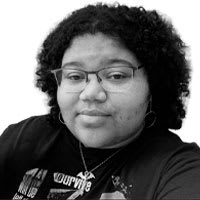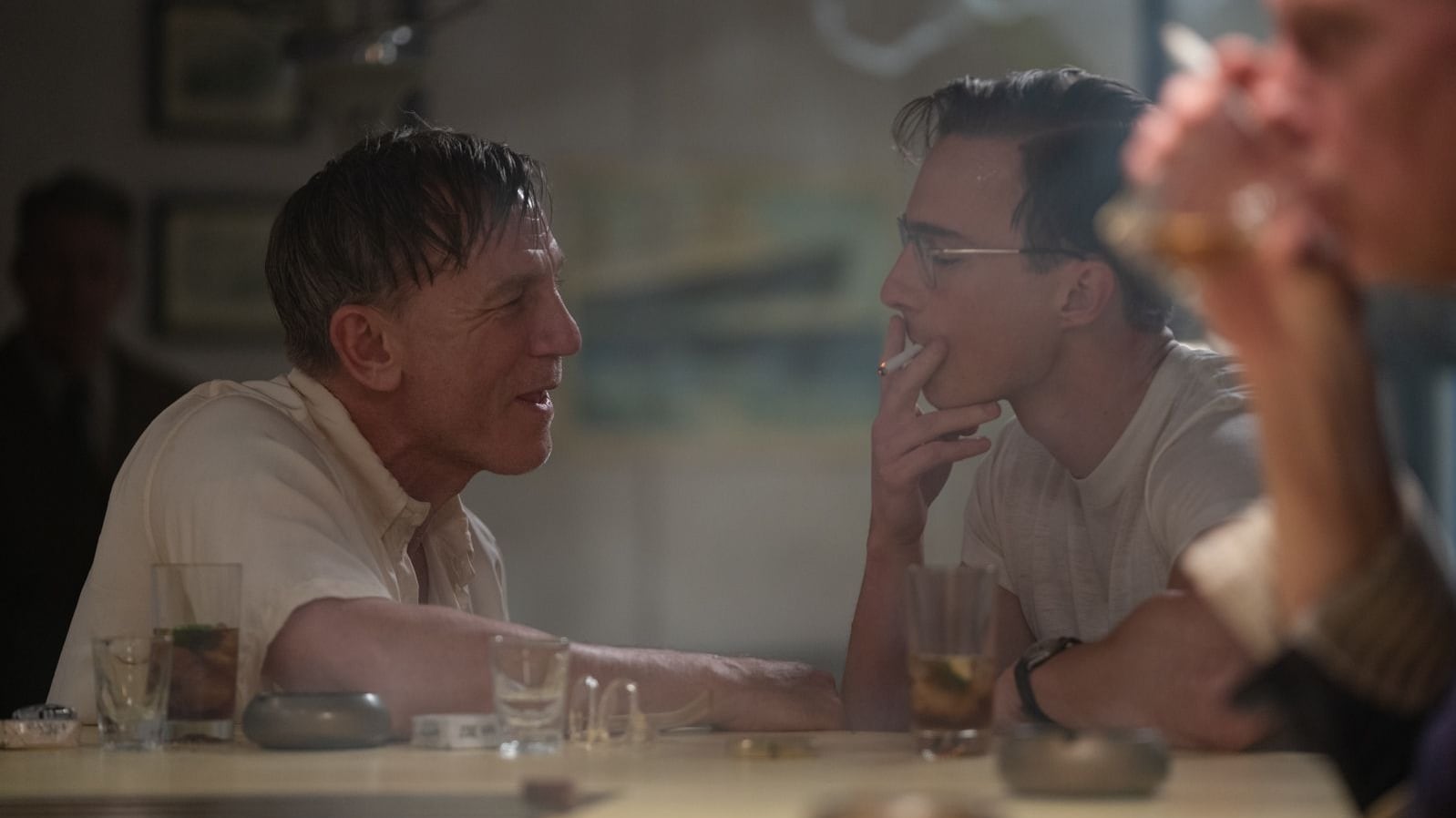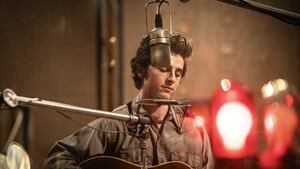In October of 1993, six months before he would die by suicide, Kurt Cobain and William S. Burroughs met for the first time. Though the two previously collaborated on “The ‘Priest’ They Called Him,” in which Burroughs reads a short story over Cobain’s discordant guitar, they hadn’t yet met in person.
After their meeting, as Cobain pulled away in a car, Burroughs reportedly said to his assistant; “There’s something wrong with that boy; he frowns for no good reason.” In April of 1994, after Cobain died by suicide, Burroughs was said to have scoured over the liner notes of Nirvana’s In Utero looking for clues like a detective, hoping to find a sign or hidden meaning within Cobain’s words.
Though they met towards the end of each other’s life, Burroughs' impact on Cobain was present throughout his music career. In Luca Guadagnino’s 2024 adaptation of Burroughs’ novel, Queer, there are three of Nirvana’s songs played throughout the first act. Despite the film being set in the 1950s, and Nirvana not releasing their first album until 1989, this choice to bridge the gap between decades and artists is one of the boldest choices that Guadagnino’s latest feature makes.
The adaptation of Burroughs novel opens with Sinead O’Connor’s cover of Nirvana’s “All Apologies.” As her lilting voice sings Cobain’s famed and tender lyrics, the camera pans over protagonist William Lee’s (Daniel Craig) room that he shares with his lover Eugene Allerton (Drew Starkey), gazing upon their shared and singular belongings. As O’Connor croons “In the sun, in the sun,” we are forced to look upon the representations of their life together, or perhaps, the remnants of it after it has already ended.

The relationship between Lee and Allerton is of course one of the central components of the film, but Queer is ultimately about a lonely man who tries to stifle the shame that accompanies this loneliness with sex and drugs. The life he lives, so desperately seeking companionship along with his next high, leaves him paralyzingly lonely, to the point that he becomes obsessed with attaining ayahuasca so he and Allerton may be able to communicate with each other better. In one tantalizing scene, Lee sticks a needle–presumably filled with heroin–into his arm, and slowly drifts off into space. We watch as the camera slowly pans out until Lee becomes so incredibly small to the eye that he appears no larger than a speck of dust amongst the universe.
The intrinsic loneliness found in Lee undoubtedly stems from his queerness. Even within the queer community he’s ostracized and has no close friends save for Joe Guidry (Jason Schwartzman) who is a bit of an outcast as well. He’s off putting to those around him, his drug fueled haze paired with his disarming earnestness making him come across as strange…too strange for the fellow queers he’s surrounded by throughout the film‘s runtime. Like Cobain, the loneliness Lee feels in Queer never goes away.
Even when Lee and his lover are together, there is an invisible pillar standing between them. It’s as if their ages impact the way they view their sexualities, and therefore, themselves. Lee’s desperation to find love and community throws Allerton, who remains aloof throughout the film, off base, further isolating him within the queer community.
As the two sit in a bar towards the end of act one, Nirvana bandmate Dave Grohl’s haunting vocals can be heard through a jukebox’s speakers. This time, lilting teasingly “He’s there in case I want it all. He’s scared ‘cause I want…” These lyrics from “Marigold” point to a growing disconnect between them, and hint at the disconnect that Lee will have with each person he encounters for the rest of his life.
Cobain’s queerness has been speculated about over the last few years, with some questioning whether the singer-songwriter struggled with his sexuality or his gender identity throughout his life. I’m not here to say I agree or disagree with these points, but I do think there is an inherent shame and alienation found within Cobain’s work that functions as a connection to understanding Queer as a film about loneliness.
As Lee struts through the Mexico streets in slo-mo, and Cobain’s raspy voice croons “Take your time, hurry up, Choice is yours, don’t be late‚” it’s impossible not to think about Nirvana’s music, William Burroughs’ written work, and Luca Guadagnino’s film as three pieces of art tethered together by their sense of sorrow.
The Nirvana tracks don’t appear after the film’s first act, and afterwards Queer unfolds into a hallucinatory spectacle. It’s still poignant, but that affective loneliness felt throughout the first quarter of the film isn’t an overwhelming presence anymore. Kurt Cobain, though he was often surrounded by his bandmates and his wife, was someone who felt like the loneliness he suffered from was synonymous with his very being. Like Lee, he was a man who found it impossible to shake the weight of this loneliness, and it tragically consumed him and his memory.

While Queer ends with Lee seemingly on the mend–skin no longer sticky with sweat and body no longer trembling–Cobain’s life did not end like this. In relegating Nirvana’s music to the beginning of this adaptation, Guadagnino has indirectly (or perhaps, directly) dedicated this film to Cobain as much as it has been dedicated to Burroughs.
The fantastical ending of Queer is a departure from the original novel, and by leaving Nirvana’s music in the first 30 minutes, Guadaginino immortalizes the band’s songs, and Cobain himself, in a perpetual loneliness they can’t escape from. It’s a loneliness that can at times be warm, like a dive-bar in 1950s Mexico, but more often than not it’s a loneliness that is somewhere distant, that no one but Cobain and Burroughs can ever truly reach.









